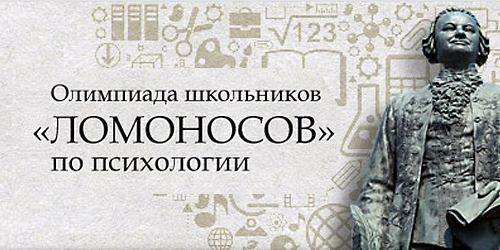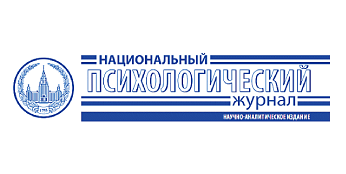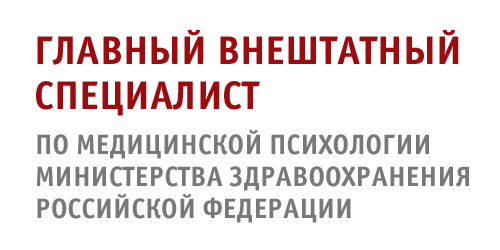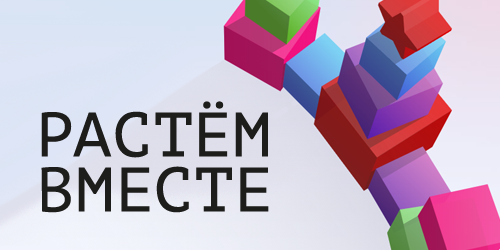Взаимосвязь метапознания и регуляторных функций в детстве: культурно-исторический контекст
Аннотация
Краткое описание проблемы. Обзор посвящен взаимосвязи регуляторных функций и метапознания в контексте культурно-исторической перспективы. На материале проведенных за последние 15 лет исследований показана общность и различия указанных конструктов. Отдельное внимание уделяется развитию регуляторных функций и метапознания, их связи с академической успешностью детей, роль социального аспекта в их становлении. Показана значимость взрослого в направленном формировании метапознания и саморегуляции, что подтверждает положения культурно-исторической теории. В рамках культурно-исторической парадигмы рассматривается несколько механизмов развития регуляторных функций: подражание, основанное на понимании; знаковое опосредствование; а также общение в социальной ситуации развития. Л.С. Выготский отмечал, что высшие психические функции возникают на основе реальных взаимодействий людей, интериоризируются, превращаясь в психологические функции.
Выводы. В обзоре установлено, что одной из распространенных моделей структуры регуляторных функций является модель, которая включает в себя такие компоненты как «рабочую память», «сдерживающий контроль» и «когнитивную гибкость».
На основании проведенного анализа можно утверждать влияние концепции Ж. Пиаже на исследования развития регуляторных функций. Известную сложность вызывает объяснение эмоциональной регуляции в контексте проблем метапознания. Вместе с тем Л.С. Выготский говорил о единстве аффекта и интеллекта, что позволяет предположить существование управления поведением и в частности эмоциональными процессами на уровне метакогнитивных процессов.
Литература
Выготский Л.С. Собрание сочинений: В 6-ти т. Т.3. М.: Педагогика, 1983.
Выготский Л.С., Лурия А.Р. Этюды по истории поведения: Обезьяна. Примитив. Ребёнок. М.: Педагогика-Пресс, 1993.
Кравцов Г.Г., Кравцова Е.Е. Игра как зона ближайшего развития детей дошкольного возраста // Психолого-педагогические исследования. 2019. Том 11. № 4. С. 5–21. doi.org/10.17759/psyedu.2019110401
Смирнова Е.О., Веракса А.Н., Бухаленкова Д.А., Рябкова И.А. Связь игровой деятельности дошкольников с показателями познавательного развития // Культурно-историческая психология. 2018. Том 14. № 1. С. 4–14. doi.org/10.17759/chp.2018140101
Сергиенко Е.А., Виленская Г.А. Контроль поведения – интегративное понятие психической регуляции /Разработка понятий современной психологии// отв. ред. Сергиенко Е.А., Журавлев А.Л. М.: Изд-во «Институт психологии РАН», 2018. С.343-378.
Andersen, P.N., Klausen, M.E ., Skogli, E.W. Art of learning – An art-based intervention aimed at improving children’s executive functions // Frontiers in Psychology. 2019. Vol. 10. Art. 1769. doi.org/10.3389/fpsyg.2019.01769
Ardila, A., Rosselli, M., Matute, E., Guajardo, S. The influence of the parents’ educational level on the development of executive functions // Developmental Neuropsychology. 2005. Vol. 28. P. 539–560. doi.org/10.1207/s15326942dn2801_5
Ardilla, A. Development of metacognitive and emotional executive functions in children // Applied Neuropsychology: Child. 2013. Vol. 2. N 2. P 82–87. doi.org/10.1080/21622965.2013.748388
Bellon, E., Fias, W., De Smedt, B. More than number sense: The additional role of executive functions and metacognition in arithmetic // Journal of Experimental Child Psychology. 2019. Vol. 182. P. 38–60. doi.org/10.1016/j.jecp.2019.01.012
Bers, M.U. et al. Computational thinking and tinkering: Exploration of an early childhood robotics curriculum // Computers & Education. 2014. Vol. 72. P. 145–157. doi.org/10.1016/j.compedu.2013.10.020
Blair, C., Razza, R. P. Relating effortful control, executive function, and false belief understanding to emerging math and literacy ability in kindergarten // Child Development. 2007. Vol. 78. N 2. P. 647–663. doi.org/10.1111/j.1467-8624.2007.01019.x
Blankson, A.N. , Weaver, J.M. , Leerkes, E.M. , O’Brien, M., Calkins, S.D., Marcovitch, S. Cognitive and emotional processes as predictors of a successful transition into school // Early Education and Development. 2017. Vol. 28. P. 1–20. doi.org/10.1080/10409289.2016.1183434
Bodrova, E., Leong, D. Tools of the mind: The Vygotskian approach to early childhood education. Englewood Cliffs, N.J: Merrill. 1996.
Boekaerts, M., Minnaert, A. Self-regulation with respect to informal learning // International Journal of Educational Research. 1999. Vol. 31. N 6. P. 533–544. doi.org/10.1016/S0883-0355(99)00020-8
Bryce, D., Whitebread, D. The development of metacognitive skills: evidence from observational analysis of young children’s behavior during problem-solving // Metacognition Learning. 2012. Vol. 7. P. 197–217. doi.org/10.1007/s11409-012-9091-2
Bryce, D., Whitebread, D., Szűcs, D. The relationships among executive functions, metacognitive skills and educational achievement in 5 and 7 year-old children // Metacognition Learning. 2015. Vol. 10. P. 181–198. doi.org/10.1007/s11409-014-9120-4
Bull, R., Scerif, G. Executive functioning as a predictor of children's mathematics ability: Inhibition, switching, and working memory // Developmental Neuropsychology. 2001. Vol. 19. N 3. P. 273–293. doi.org/10.1207/S15326942DN1903_3
Causey, K.B., Bjorklund, D.F. Prospective memory in preschool children: influences of agency, incentive, and underlying cognitive mechanisms // Journal of Experimental Child Psychology. 2014. Vol. 127. P. 36–51. doi.org/10.1016/j.jecp.2014.01.020
Clerc, J., Miller, P.H., Cosnefroy, L. Young children's transfer of strategies: Utilization deficiencies, executive function, and metacognition // Developmental Review. 2014. Vol. 34. N 4. P. 378–393. doi.org/10.1016/j.dr.2014.10.002
Dawson, P., Guare, R. Executive skills in children and adolescents: A practical guide to assessment and intervention. (2nd ed.): New York, NY. Guilford Press, 2010. doi.org/10.1080/13632752.2011.545659
Demetriou, A., Spanoudis, G. (2017). Mind and intelligence: Integrating developmental, psychometric, and cognitive theories of human mind. In M. Rosen (Ed.), Challenges in Educational Measurement— contents and methods (pp. 39-60). New York: Springer.
Destan, N., Hembacher, E., Ghetti, S., Roebers, C.M. Early metacognitive abilities: The interplay of monitoring and control processes in 5- to 7-year-old children // Journal of Experimental Child Psychology. 2014. Vol. 126. P. 213–228. doi.org/10.1016/j.jecp.2014.04.001
Diamond, A. The early development of executive functions. In E. Bialystok & F. I. M. Craik (Eds.), Lifespan cognition: Mechanisms of change (p. 70–95). Oxford University Press, 2006. doi.org/10.1093/acprof:oso/9780195169539.003.0006
Doebel S. Rethinking executive function and its development // Perspectives on Psychological Science. 2020. Vol. 15. N 4. P. 942–956. doi.org/10.1177/1745691620904771
Doebel, S., Munakata, Y. Group influences on engaging self-control: children delay gratification and value it more when their in-group delays and their out-group doesn't // Psychological Science. 2018. Vol. 29. N 5. P. 738–748. doi.org/10.1177/0956797617747367
Dunlosky, J., Rawson, K.A. Overconfidence produces underachievement: Inaccurate self evaluations undermine students’ learning and retention // Learning and Instruction. 2012. Vol. 22. N 4. P. 271–280. doi.org/10.1016/j.learninstruc.2011.08.003
Efklides, A. Interactions of metacognition with motivation and affect in self-regulated learning: The MASRL model // Educational Psychologist. 2011. Vol. 46. N 1. P. 6–25. doi.org/10.1080/00461520.2011.538645
Espinet S., Anderson J., Zelazo P. Reflection training improves executive function in preschool-age children: Behavioral and neural effects // Developmental Cognitive Neuroscience. 2013. Vol. 4. P. 3–15. doi.org/10.1016/j.dcn.2012.11.009
Estes, D. Young children's awareness of their mental activity: The case of mental rotation // Child Development. 1998. Vol. 69. N 5. P. 1345–1360. doi.org/10.2307/1132270
Farah, M.J., Shera, D.M., Savage, J.H., Betancourt, L., Giannetta, J.M., Brodsky, N.L., et al. Childhood poverty: Specific associations with neurocognitive development // Brain Research. 2006. Vol. 1110. N 1. P. 166–174. doi.org/10.1016/j.brainres.2006.06.072
Flavell, J.H. Stage-related properties of cognitive development // Cognitive Psychology. 1971. Vol. 2. N 4. P. 421–453. doi.org/10.1016/0010-0285(71)90025-9
Flavell, J.H., Green, F.L., Flavell, E.R. Development of children’s awareness of their own thoughts // Journal of Cognition and Development. 2000. Vol. 1. P. 97–112. doi.org/10.1207/S15327647JCD0101N_10
Flook, L., Smalley, S., Kitil, J.M., Galla, B.M., Kaiser-Greenland, S., Locke, J., Ishijima, E., Kasari, C. Effects of mindful awareness practices on executive functions in elementary school children // Journal of Applied School Psychology. 2010. Vol. 26. N 1. P. 70–95. doi.org/10.1080/15377900903379125
Garcia, T. et al. Metacognition and executive functioning in elementary school // Anal. Psicol. 2016. Vol. 32. N 2. P. 474–483. doi.org/10.6018/analesps.32.2.202891
Geurten, M., Catale, C., Meulemans, T. When children's knowledge of memory improves children's performance in memory // Applied Cognitive Psychology. 2015. Vol. 29. N 2. P. 244–252. doi.org/10.1002/acp.3102
Hembacher, E., Ghetti, S. Don’t look at my answer: subjective uncertainty underlies preschoolers’ exclusion of their least accurate memories // Psychological Science. 2014. Vol. 25. N 9. P. 1768–1776. doi.org/10.1177/0956797614542273
Isquith, P.K., Gioia, G.A., Espy, K.A. Executive function in preschool children: Examination through everyday behavior // Developmental Neuropsychology. 2004. Vol. 26. N 1. P. 403–422. doi.org/10.1207/s15326942dn2601_3
Jaswal, V.K., Dodson, C.S. Metamemory development: Understanding the role of similarity in false memories // Child Development. 2009. Vol. 80. N 3. P. 629–635. doi.org/10.1111/j.1467-8624.2009.01286.x
Jurado, M.B., Rosselli, M. The elusive nature of executive functions: A review of our current understanding // Neuropsychology Review. 2007. Vol. 17. P. 213–233. doi.org/10.1007/s11065-007-9040-z
Kloo, D., Perner, J. Training transfer between card sorting and false belief understanding: helping children apply conflicting descriptions // Child Development. 2003. Vol. 74. P. 1823–1839. doi.org/10.1046/j.1467-8624.2003.00640.x
Koriat, A., Ackerman, R. Metacognition and mindreading: Judgments of learning for self and other during self-paced study // Consciousness and Cognition. 2010. Vol. 19. N 1. P. 251–264. doi.org/10.1016/j.concog.2009.12.010
Lai, R.P., Ellefson, M.R., Hughes, C. Executive functions and metacognitive monitoring are not interchangeable in educational settings: Their shared and unique contribution to academic outcomes // PsyArXiv. 2019. doi.org/10.31234/osf.io/4jhnz
Lee, K., Bull, R., Ho, R.M.H. Developmental changes in executive functioning // Child Development. 2013. Vol. 84. P. 1933–1953. doi.org/10.1111/cdev.12096
Lehto, J.E., Juujärvi, P., Kooistra, L., Pulkkinen, L. Dimensions of executive functioning: Evidence from children // British Journal of Developmental Psychology. 2003. Vol. 21, P. 59–80. doi.org/10.1348/026151003321164627
Lipowski, S.L., Merriman, W.E., Dunlosky, J. Preschoolers can make highly accurate judgments of learning // Developmental Psychology. 2013. Vol. 49. N 8. P. 1505–1516. doi.org/10.1037/a0030614
Lockl, K., Schneider, W. Developmental trends in children’s feeling-of-knowing judgements // International Journal of Behavioral Development. 2002. Vol. 26. N 4. P. 327–333. doi.org/10.1080/01650250143000210
Lucassen, N. et al. Executive functions in early childhood: The role of maternal and paternal parenting practices // British Journal of Developmental Psychology. 2015. Vol. 33. N 4. P. 489–505. doi.org/10.1111/bjdp.12112
Lyons, K.E., Ghetti, S. The development of uncertainty monitoring in early childhood // Child Development. 2011. Vol. 82. N 6. P. 1778–1787. doi.org/10.1111/j.1467-8624.2011.01649.x
Marulis, L.M., Nelson, L.J. Metacognitive processes and associations to executive function and motivation during a problem-solving task in 3–5 year olds // Metacognition Learning. 2020. doi.org/10.1007/s11409-020-09244-6
Miyake, A., Friedman, N., Emerson, M., Witzki, A., Howerter, A., Wager, T. The unity and diversity of executive functions and their contributions to complex “frontal lobe” tasks: a latent variable analysis // Cognitive psychology. 2000. Vol 41. P. 49–100. doi.org/10.1006/cogp.1999.0734
Moriguchi, Y., Sakata, Y., Ishibashi, M., Ishikawa, Y. Teaching others rule-use improves executive function and prefrontal activations in young children // Frontiers in Psychology. 2015. Vol. 6. Art. 894. doi.org/10.3389/fpsyg.2015.00894
Murray, J., Theakston, A., Wells, A. Can the attention training technique turn one marshmallow into two? Improving children's ability to delay gratification // Behaviour Research and Therapy. 2016. Vol. 77. P. 34–39. doi.org/10.1016/j.brat.2015.11.009
Price, M.C., Norman, E. Intuitive decisions on the fringes of consciousness: are they conscious and does it matter // Judgment and Decision Making. 2008. Vol. 3. N 1. P 28–41.
Redick, T.S., Shipstead, Z., Wiemers, E.A. et al. What’s working in working memory training? An educational perspective // Educational Psychology Review. 2015. Vol. 27. P. 617–633. doi.org/10.1007/s10648-015-9314-6
Roebers, C.M. Executive function and metacognition: Towards a unifying framework of cognitive self-regulation // Developmental Review. 2017. Vol. 45. P. 31–51. doi.org/10.1016/j.dr.2017.04.001
Roebers, C.M., Cimeli, P., Röthlisberger, M. et al. Executive functioning, metacognition, and self-perceived competence in elementary school children: An explorative study on their interrelations and their role for school achievement // Metacognition Learning. 2012. Vol. 7. P. 151–173. doi.org/10.1007/s11409-012-9089-9
Rodriguez, G.L., Muntada M.C., Pros R.C. Relacion del Funcionamiento y Procesos Metacognitivos con el Rendimiento Academco en Ninos y Ninas de Primaria// Revista Complutense de Educatoin. 2018. 29 (4). 1059-1073.
Rossignoli-Palomeque, T. et al. Schoolchildren's compensatory strategies and skills in relation to attention and executive function app training // Frontiers in Psychology. 2019. Vol. 10. Art. 2332. doi.org/10.3389/fpsyg.2019.02332
Röthlisberger, M. et al. Executive functions in 5- to 8-year olds: Developmental changes and relationship to academic achievement // Journal of Educational and Developmental Psychology. 2013. Vol. 3. N 2. P. 153–167. doi.org/10.5539/jedp.v3n2p153
Ruffman, T., Garnham. W., Import A., Connolly D. Does eye gaze indicate implicit knowledge of false belief? Charting transitions in knowledge // Journal of Experimental Child Psychology. 2001. Vol. 80. N 3. P. 201–224. doi.org/10.1006/jecp.2001.2633
Salles, A. et al., The metacognitive abilities of children and adults // Cognitive Development. 2016. Vol. 40. P. 101–110. doi.org/10.1016/j.cogdev.2016.08.009
Shin, H., Bjorklund, D.F., Beck, E.F. (2007). The adaptive nature of children′s overestimation in a strategic memory task // Cognitive Development. 2007. Vol. 22. N 2. P. 197–212. doi.org/10.1016/j.cogdev.2006.10.001
Simons, C., Metzger, S.R., Sonnenschein, S. Children’s metacognitive knowledge of five key learning processes // Translational Issues in Psychological Science. 2020. Vol. 6. N 1. P. 32–42. doi.org/10.1037/tps0000219
Spiess, M.A., Meier, B., Roebers, C.M. Development and longitudinal relationships between children’s executive functions, prospective memory, and metacognition // Cognitive Development. 2016. Vol. 38. P. 99–113. doi.org/10.1016/j.cogdev.2016.02.003
Steiner, M., van Loon, M.H., Bayard, N.S. et al. Development of children’s monitoring and control when learning from texts: Effects of age and test format // Metacognition Learning. 2020. Vol. 15. P. 3–27. doi.org/10.1007/s11409-019-09208-5
Thorell L., Lindqvist S., Bergman Nutley S., Bohlin G., Klingberg T. Training and transfer effects of executive functions in preschool children // Developmental Science. 2009. Vol. 12. P. 106–113. doi.org/10.1111/j.1467-7687.2008.00745.x
Toplak, M.E., West, R.F., Stanovich, K.E. Practitioner review: Do performance-based measures and ratings of executive function assess the same construct? // Journal of Child Psychology and Psychiatry. 2013. Vol. 54. N 2. P. 131–143. doi.org/10.1111/jcpp.12001
Towe-Goodman, N.R., Willoughby, M., Blair, C., Gustafsson, H.C., Mills-Koonce, W.R., Cox, M.J. Fathers’ sensitive parenting and the development of early executive functioning // Journal of Family Psychology. 2014. Vol. 28. N 6. P. 867–876. doi.org/10.1037/a0038128
Traverso, L., Viterbori, P., Usai, M.C. Improving executive function in childhood: evaluation of a training intervention for 5-year-old children // Frontiers in Psychology. 2015. Vol. 6. Art. 525. doi.org/10.3389/fpsyg.2015.00525
Van Loon, M.H., Destan, N., Spiess, M.A., de Bruin, A., Roebers, C.M. Developmental progression in performance evaluations: Effects of children’s cue-utilization and self-protection // Learning and Instruction. 2017. Vol. 51. P. 47–60. doi.org/10.1016/j.learninstruc.2016.11.011
Veraksa A., Bukhalenkova D., Almazova O. Executive functions and quality of classroom interactions in kindergarten among 5–6-year-old children // Frontiers in Psychology. 2020. Vol. 11: 603776. doi.org/10.3389/fpsyg.2020.603776
Veraksa, A., Bukhalenkova, D., Almazova, A. Studying executive functions in senior preschoolers // PsyCh Journal. 2020. Vol. 1. P. 144-146. doi.org/10.1002/pchj.310
Veraksa, A.N., Bukhalenkova, D.A., Kovyazina, M.S. Language proficiency in preschool children with different levels of executive function // Psychology in Russia: State of the Art. 2018. Vol. 11. N 4. P. 115–129. doi.org/10.11621/pir.2018.0408
Veraksa, A.N., Gavrilova, M.N., Bukhalenkova, D.А., Almazova, O., Veraksa, N., Colliver, Y. Does Batman™ affect EF because he is benevolent or skilful? The effect of different pretend roles on pre-schoolers' executive functions // Early Child Development and Care. 2019. doi.org/10.1080/03004430.2019.1658091
Veraksa, A.N., Ochepkova, E., Bukhalenkova, D.A., Kartushina, N. The relationship of executive functions and speech production in senior preschool children: Working memory and storytelling // Clinical Psychology and Special Education. 2019. Vol. 8. N 3. P. 56–84. doi.org/10.17759/cpse.2019080304
Volckaert, A.M.S, Noël, M.-P. Externalizing behavior problems in preschoolers: Impact of an inhibition training // Journal of Abnormal Psychology. 2016. Vol. 5. N 2. doi.org/10.4172/2471-9900.1000154
Walker, S., Fleer, M., Veresov, N., Duhn, I. Enhancing executive function through imaginary play: a promising new practice principle // Australasian Journal of Early Childhood. 2020. Vol. 45. N 2. P. 114–126. doi.org/10.1177/1836939120918502
Welsh, J.A., Nix, R.L., Blair, C., Bierman, K.L., Nelson, K.E. The development of cognitive skills and gains in academic school readiness for children from low-income families // Journal of Educational Psychology. 2010. Vol. 102. N 1. P. 43–53. doi.org/10.1037/a0016738
Welsh, M.C., Pennington, B.F. Assessing frontal lobe functioning in children: Views from developmental psychology // Developmental Neuropsychology. 1988. Vol. 4. N 3. P. 199–230. doi.org/10.1080/87565648809540405
Whitebread, D. Interactions between children’s metacognitive abilities, working memory capacity, strategies and performance during problem-solving // European Journal of Psychology of Education. 1999. Vol. 14. P. 489–507. doi.org/10.1007/BF03172975
Whitebread, D., Coltman, P., Pasternak, D.P. et al. The development of two observational tools for assessing metacognition and self-regulated learning in young children // Metacognition Learning. 2009. Vol. 4. P. 63–85. doi.org/10.1007/s11409-008-9033-1
Wiebe, S.A., Espy, K.A., Charak, D. Using confirmatory factor analysis to understand executive control in preschool children: I. Latent structure // Developmental Psychology. 2008. Vol. 44. P. 575–587. doi.org/10.1037/0012-1649.44.2.575
Zelazo, P.D., Müller, U., Frye, D., Marcovitch, S. The development of executive function: Cognitive complexity and control–revised // Monographs of the Society for Research in Child Development. 2003. Vol. 68. P. 93–119. doi.org/10.1111/j.1540-5834.2003.06803007.x
Поступила: 09.01.2021
Принята к публикации: 25.07.2021
Дата публикации в журнале: 30.03.2021
Ключевые слова: метапознание; регуляторные функции; культурно-историческая теория; метакогнитивная регуляция
DOI: 10.11621/vsp.2021.01.04
Доступно в on-line версии с: 30.03.2021
Веракса, А.Н., Веракса, Н.Е. (2021). Взаимосвязь метапознания и регуляторных функций в детстве: культурно-исторический контекст. Вестник Московского университета. Серия 14. Психология, (1), 79-113. https://doi.org/10.11621/vsp.2021.01.04
скопировано

Это произведение доступно по лицензии Creative Commons «Attribution-NonCommercial» («Атрибуция-Некоммерчески») 4.0 Всемирная
















